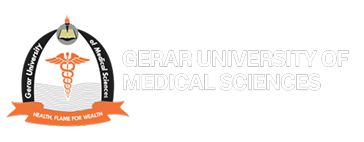
Human Nutrition and Dietetics is a vital field within the health sciences that focuses on the role of food and nutrition in health, disease prevention, and treatment.
Food Science and Safety, Community, Clinical Nutrition
Human Nutrition and Dietetics is a vital field within the health sciences that focuses on the role of food and nutrition in health, disease prevention, and treatment. This discipline integrates knowledge from various scientific fields, including biology, chemistry, and physiology, to understand how nutrients affect the human body. Professionals in this field, such as dietitians and nutritionists, play a crucial role in promoting health and managing diseases through diet.

Imope, Local, Government Area, Ijebu Ode, Ogun State, Nigeria
Email: info@gumed.edu.ng
Tel: +234 812 630 7303
